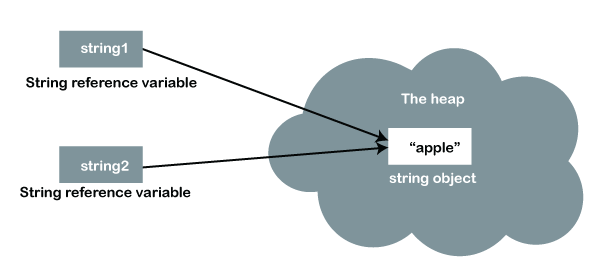Unalterable Strings: A Secret Element in Ensuring Data Consistency and Integrity
In the realm of information administration, the value of immutable strings can not be overemphasized. The concept of immutable strings goes beyond simple triviality; it is a linchpin in the complex internet of information governance.
The Principle of Unalterable Strings
Unalterable strings, a basic concept in shows, describe strings that can not be changed when they are produced. Basically, as soon as a string value is assigned, any kind of operation that appears to modify the string actually produces a new string. This immutability guarantees information uniformity and reliability in applications, as it prevents unforeseen modifications to the original information.
Advantages in Information Consistency

Data consistency is important in different facets of software program development, including data source administration, multi-threaded settings, and distributed systems (Why are strings immutable in Java?). Unalterable strings contribute considerably to achieving this uniformity by avoiding information corruption due to concurrent gain access to. In scenarios where several procedures or threads connect with the very same data at the same time, unalterable strings serve as a secure against race problems and synchronization problems
Moreover, the immutability of strings streamlines debugging and testing procedures. With unalterable strings, designers can rely on that once a string is set, it will stay the same, making it less complicated to trace the resource of errors and making certain that examination cases generate constant results. This dependability in data dealing with inevitably brings about more stable and robust applications.

Carrying Out Immutable Strings
Ensuring the immutability of strings calls for a thoughtful approach to their execution in software application growth. Once a string things is created, one essential strategy is to create string classes in a means that stops modifications. By making strings unalterable, designers can improve data consistency and reliability in their applications.
To execute unalterable strings efficiently, programmers must prefer creating new string objects instead of changing existing ones. This practice makes certain that once a string is assigned a value, it can not be transformed. In addition, any kind of operation that shows up to modify the string ought to produce a brand-new string with the desired changes rather of altering the initial.
Furthermore, utilizing immutable strings webpage can streamline concurrency administration in multi-threaded atmospheres. Given that immutable strings can not be altered after development, they can be safely shared amongst multiple threads without the danger of information corruption.
Role in Integrity Guarantee
In software application growth, the application of unalterable strings plays an essential function in making sure the reliability of information procedures. Unalterable strings, once created, can not be changed, ensuring that the data they represent continues to be consistent throughout the application's execution. This immutability building supplies a degree of guarantee that the information being processed will not be unintentionally transformed, resulting in unexpected outcomes or errors in the Visit Website system.
By incorporating immutable strings right into software program layout, programmers can improve the dependability of their applications by lessening the dangers related to mutable data - Why are strings immutable in Java?. Immutable strings help in protecting against data corruption or unintentional modifications, which can be especially critical when managing delicate info or when information integrity is extremely important
In addition, using immutable strings simplifies concurrent processing, as several strings can securely access and share string data without the threat of one thread altering the web content while another is reading it. This aspect contributes considerably to the total reliability of the software program system, making sure predictable and regular behavior in data handling procedures.
Applications and System Integration
The seamless combination of immutable strings right into different applications and systems is crucial for ensuring durable data uniformity and integrity throughout diverse technical atmospheres - Why are strings immutable in Java?. Immutable strings play an essential duty in improving the honesty of data exchanges and communications within complex software application ecosystems. By incorporating unalterable strings right into applications, designers can reduce the threats related to information meddling, unapproved modifications, and unintended changes, thus fortifying the general security pose of the system
In the context of system integration, unalterable strings act my response as a foundational component for developing safe and secure communication channels and assisting in smooth data transfers in between different components. Their unalterable nature makes certain that information sent in between systems remains the same and verifiable, reducing the possibility of variances or errors that might jeopardize the stability of the entire system. In addition, immutable strings can enhance interoperability between inconsonant systems by providing a standard format for information depiction, making it possible for more reliable data processing and exchange procedures across interconnected platforms. By embracing unalterable strings in applications and system assimilation processes, companies can strengthen their information framework and promote the dependability and uniformity of their info possessions.
Verdict
Finally, unalterable strings play an essential role in preserving data uniformity and integrity in different applications and system integrations. By ensuring that strings can not be transformed when produced, the integrity of information is protected, decreasing the danger of errors and incongruities. Applying immutable strings can significantly enhance the integrity of systems, ultimately leading to even more trustworthy and exact information handling.
